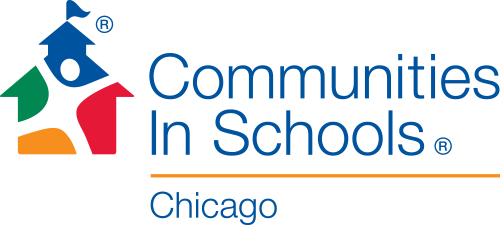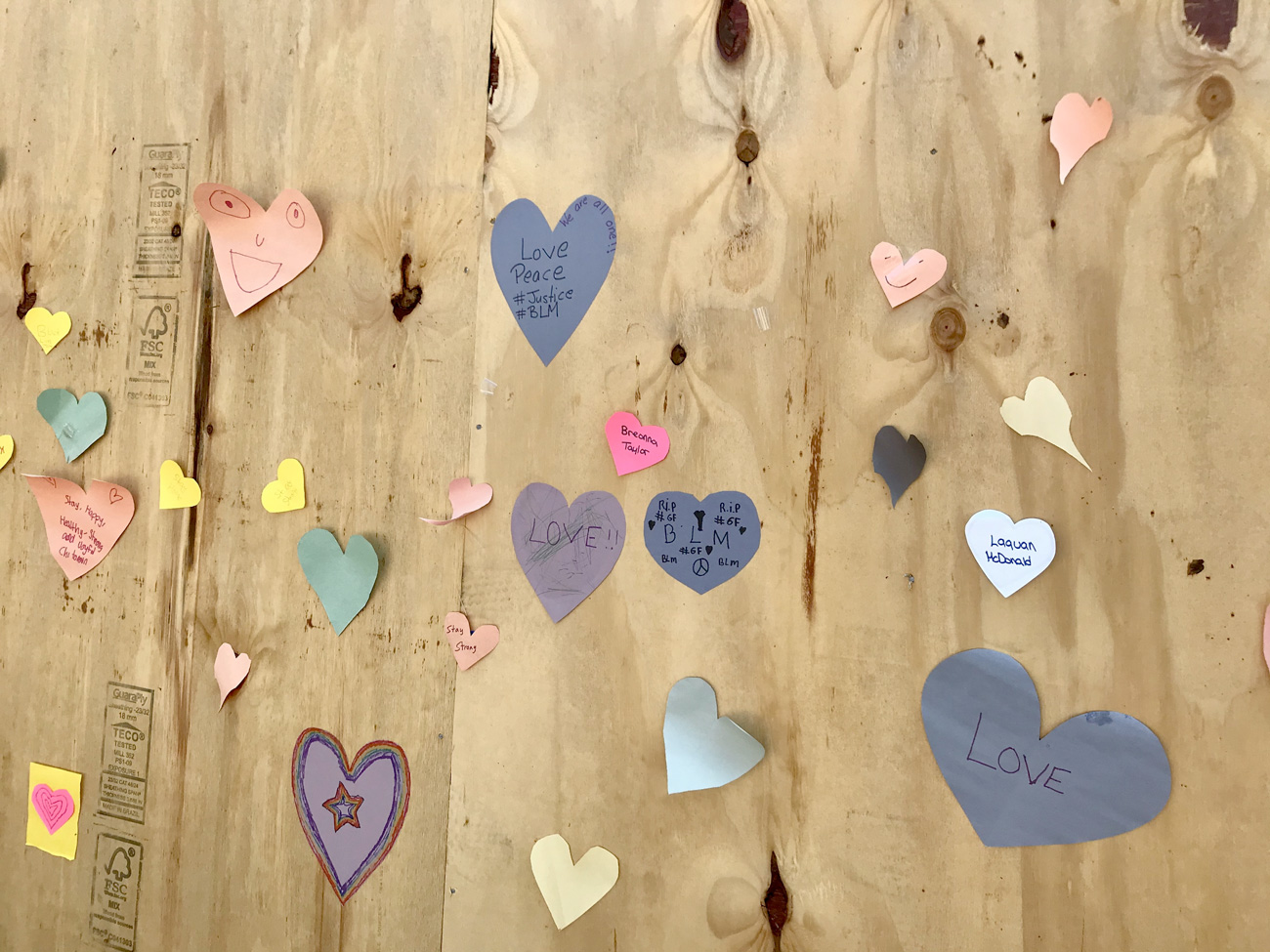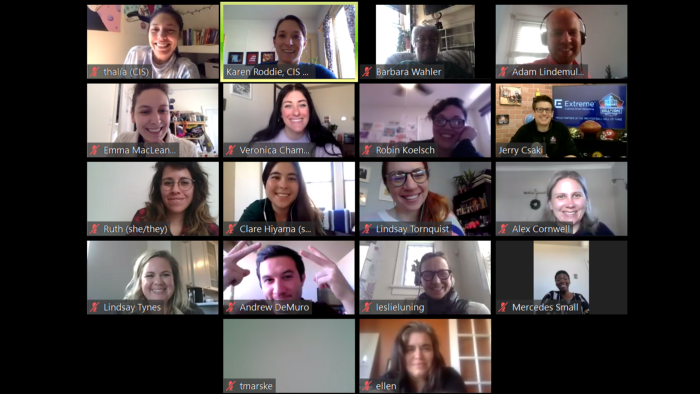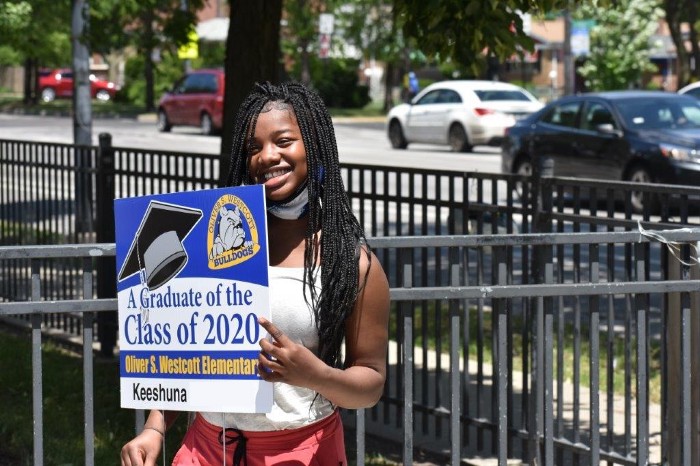As Chicago Public Schools begins the fall 2020 semester remotely, teachers and school administrators are examining how to engage students in academic curriculum, but they are also looking at how to meet students’ social and emotional needs as well.
That’s where Community Partnership Specialists at Communities In Schools (CIS) of Chicago come in. They are taking these concerns from school partners and helping community partners reimagine fall programming so that students still have access to the enrichment opportunities and resources they need.
Community Partnership Specialists are reaching out to roughly 300 different partners in the arts, behavioral and mental health, college and career readiness, and health and wellness, and they are having intentional conversations about translating traditionally in-person programs to online platforms. With CIS of Chicago’s help, community partners are finding ways to create a sense of community on Google Meet, address student emotions, and stay patient during this time of constant change.
Community Partnership Specialists are also helping partners devise a long-term strategy for supporting students, whether that be through pre-recorded content, live virtual content, or in-person presentations. Despite the uncertainty, CIS of Chicago is hearing from community partners, “What do schools need? What will help our students succeed? We are ready to help!”
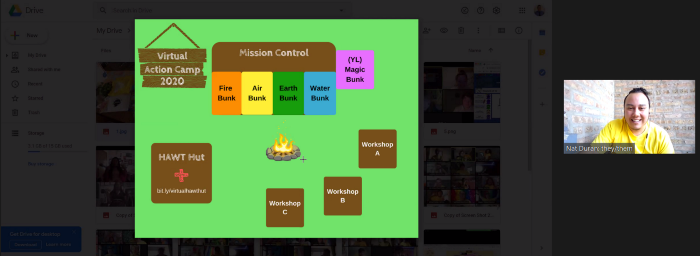
This summer, for example, the Illinois Safe Schools Alliance of PHIMC, a CIS of Chicago community partner, planned a five-day Action Camp. In normal years, Action Camp convenes LGBTQ+ youth leaders in a sleepaway camp setting, where they support and celebrate all identities. Action Camp went virtual this year, but the Alliance was still able to create a “bunk” experience for students via virtual breakout rooms, workshops, evening activities, and community-building.
The Alliance’s pivot is just one example of our community partners’ innovation this year. As the fall semester gets underway, CIS of Chicago is helping partners connect with school communities and navigate everything from program logistics to student engagement strategies.
Here is a look into how our community partners are innovating fall programming — and how CIS of Chicago is amplifying those efforts:
Imagination Theater
Hosting Performance-Based Programs in the Age of COVID-19
Imagination Theater engages audiences in participation, rather than just observation. Their No Secrets program is tailored to students in Kindergarten through eighth grade and creates a conversation around safe vs. unsafe touch and sexual abuse prevention. Typically, the program is performed live, in school buildings, and provides students with resources — should they need additional help or counseling.
In the remote learning landscape, live performances can no longer occur safely, but Imagination Theater actors have taken scenes from No Secrets, filmed them, and edited the footage to make it look like the actors were in the same space. With the help of Karen Roddie, CIS of Chicago Associate Director of Community Partnerships, Imagination Theater is getting connected with interested schools. Their team has strategized how to provide these clips to teachers and how to facilitate a live, virtual discussion so that actors can still role play with students, even through Google Meet.
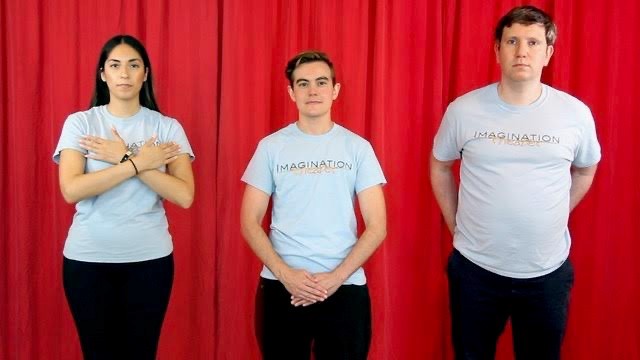
Peace Exchange
Engaging Students through Google Meet
The Peace Exchange is another community partner whose programming is deeply embedded in Chicago public schools. Their Speaking Peace program teaches students in grades 5–8 how to peacefully avoid and resolve conflict through four modules. When the Peace Exchange team was looking to adapt these modules to remote learning this summer, they discussed with CIS of Chicago staff how they could still maintain student engagement with recorded videos.
CIS of Chicago’s Karen Roddie helped them think through this pivot. The Peace Exchange ultimately decided on appearing live in virtual classrooms to introduce themselves, presenting a pre-recorded video module, and then jumping back on to lead a live, virtual discussion. With the Partnership Team’s guidance, the Peace Exchange now has a better sense of what teachers are looking for and how to best adapt Speaking Peace to remote learning. Their now virtual program allows CIS of Chicago to still offer conflict resolution curriculum to school partners and provide students with this important and highly requested program.
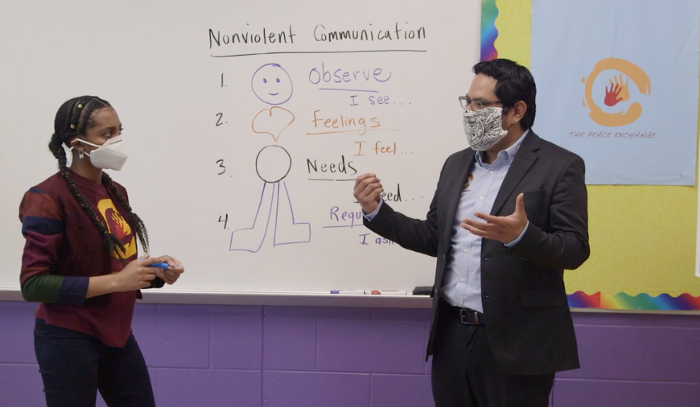
Northlight Theatre
Tackling Social Justice Issues Through Art
Speak Up, a theatre residency offered by Northlight, asks students to reflect on issues impacting their community and then guides them through the process of creating their own performance. In previous semesters, students tackled topics around the environment, race, mental health pressures, and gender inequality, but this fall, Northlight is preparing to host a Speak Up program like no other. Their teaching artists and education team are reimagining everything from the method of delivery to trauma-informed care and anti-racism education.
CIS of Chicago Art Partnership Specialist Emma MacLean connected Northlight with Garvey Elementary and Legacy Charter School, two schools she knew would benefit from arts programming like Speak Up. Emma is thinking creatively about how Northlight and CIS of Chicago’s other arts partners can meet students’ social and emotional needs, and this fall, Northlight teaching artists will lead the middle school students through a series of sessions on identity, community, and arts activism — through a social-emotional learning lens.
Since students will participate through Google Meet, Northlight teaching artists have planned dynamic activities to break up the screen time. They’ve thought through collaboration activities on Jamboard and have even retooled Speak Up’s final performance format. At the end of 16 sessions, students will submit a two- to five-minute audio or video recording, and the Northlight team will put together a montage of the students’ work, or they will host a live-sharing, virtual gallery walk.
Although this fall will present a completely new teaching environment for Northlight — one that requires them to constantly evaluate and innovate to meet student and school needs — their education team says they are excited to simply share space with students and engage them in artistic self-expression.
